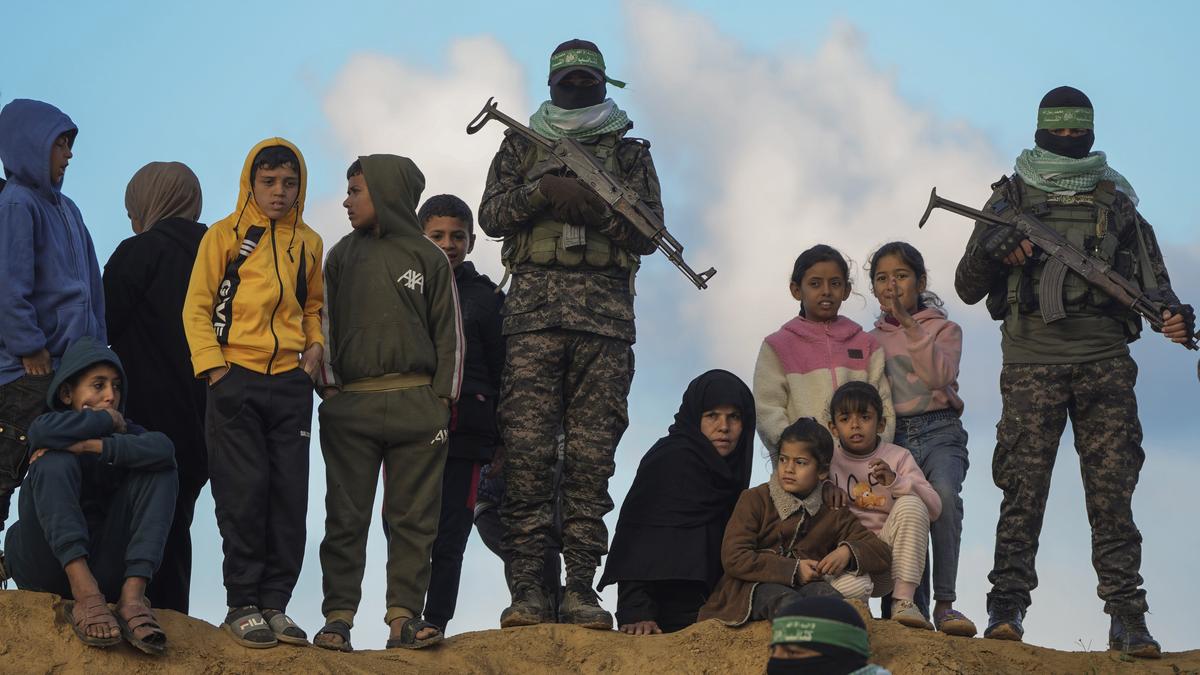Israel was making preparations on Saturday (February 22, 2025) to receive six remaining hostages from Gaza in exchange for hundreds of Palestinian prisoners and detainees. This exchange was part of a ceasefire deal agreed upon last month, but it faced challenges after a misidentified body was returned earlier in the week. The situation threatened to disrupt the fragile truce that was in place.
The six hostages, the last living members from a group of 33 set to be released in the initial stage of the ceasefire agreement, were scheduled to be handed over around 8:30 a.m. (12 p.m. IST) as confirmed by officials from Hamas, the militant group.
Among the hostages to be released were Eliya Cohen, 27, Tal Shoham, 40, Omer Shem Tov, 22, Omer Wenkert, 23, who were captured by Hamas gunmen during an attack on Israel on October 7, 2023. Additionally, Hisham Al-Sayed, 36, and Avera Mengistu, 39, had been held by Hamas for about a decade under undisclosed circumstances.
In return for the hostages, Israel was expected to release 602 Palestinian prisoners and detainees who were being held in its prisons. Despite several challenges that almost derailed the exchange, the process was moving forward.
On Thursday, Israel accused Hamas of violating the ceasefire by returning an unidentified body instead of the remains of Shiri Bibas, a hostage who was supposed to be returned along with the bodies of her two young sons. Hamas claimed that her remains were mistakenly mixed up with other human remains found after an Israeli airstrike that Hamas said killed her and her sons in November 2023. Subsequently, another body was handed over by Hamas for Israeli forensic officials to investigate for confirmation of identity.
The Bibas family, who were taken captive during the October 7 attack, became a symbol of the tragedy faced by Israel on that day. The misidentification of Shiri Bibas’ remains and the staged return of their coffins by Hamas caused outrage among Israelis.

Israeli military investigations and forensic analysis indicated that the two young sons of the Bibas family had been deliberately killed by their captors. Prime Minister Benjamin Netanyahu warned Hamas of consequences for not returning the body of Shiri Bibas but refrained from abandoning the ceasefire agreement that had come into effect on January 19.
Despite accusations from both sides about breaching the ceasefire, Hamas officially provided Israel with the names of the hostages to be released on Saturday, indicating that the handover was still on track.
The ceasefire had brought a temporary halt to the conflict, but the path to a lasting peace remained uncertain. Hamas, despite suffering heavy losses during its attack on Israel, sought to demonstrate its control in Gaza.
The Israeli offensive resulted in significant casualties, with Palestinian health authorities reporting at least 48,000 deaths and widespread destruction in Gaza. Hundreds of thousands of people were left displaced and reliant on aid.
Efforts were underway to initiate talks for the second stage of the ceasefire, focusing on the release of the remaining hostages and the withdrawal of Israeli forces. However, disagreements over the future of Gaza persisted, exacerbated by the controversial proposal by U.S. President Donald Trump to transform Gaza into a resort under U.S. administration.
Published – February 22, 2025 08:40 am IST








































